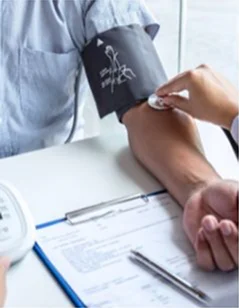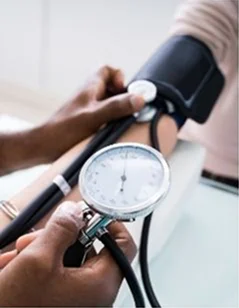A hypertensive crisis is an unexpected serious spike in blood pressure. For example, if the reading of blood pressure is 180/120 mm Hg, there is a need for a medical emergency. The reason is that high blood pressure leads to stroke, heart attack, dementia or many severe health issues.
Nowadays, high blood pressure or hypertension has become a prevalent health issue among individuals. Recent statistics indicate that one in three people experiences hypertension. Hence, it is crucial for people to take necessary measures to prevent this condition as it can harm their blood vessels.
Also Read: Reasons To Get an Air Purifier
Classification of Hypertensive Crisis
High blood pressure or hypertension can be broadly classified into two types, namely Emergency Hypertension and Urgent Hypertensive, as follows:
- Emergency Hypertension
In this condition, patients require immediate medical attention as their blood pressure can reach 180/120 mm Hg or more. Failure to take preventive measures or seek timely treatment can lead to life-threatening complications affecting various body organs, including the brain, kidneys, eyes, and heart.
- Urgent Hypertensive
This type of hypertension results in a sudden rise in blood pressure levels, similar to emergency hypertension. However, it does not cause any organ damage. Individuals can wait for 2 to 5 minutes and check their blood pressure again before seeking medical treatment for hypertensive urgency. The good news is that hospitalization may not be necessary, but it is vital to take medication as prescribed by the doctor.
Hypertensive Crisis’ Common Cause
A hypertensive crisis occurs when an individual experiences a sudden and extreme spike in their blood pressure levels. A diastolic BP (the bottom number) above 120 mmHg and a systolic BP or the top number above 180 mmHg indicate that one is dealing with hypertensive crisis.
A hypertensive crisis can lead to severe complications, such as leakage of fluid or blood from blood vessels, making it difficult to pump blood to the heart effectively. Inability of the heart to pump blood to the body can result in organ damage. Additionally, there are several other conditions that can cause hypertensive issues, including:
- Kidney or heart failure
- Chronic hypertension
- Stroke
- Aorta rupture
- Heart attack
- Failure to take or improper use of blood pressure medications
Difference Between Healthy and Unhealthy Blood Pressure
Having knowledge of healthy and unhealthy blood pressure levels is crucial for individuals to understand the severity of their condition. This knowledge enables one to decide when to seek professional medical help or be concerned about their health.
A healthy blood pressure reading ranges between 90/60 and 120/180. If the reading surpasses this range, it indicates unhealthy blood pressure levels. In cases of healthy blood pressure, individuals may not require immediate medical attention and can wait for some time to normalize. However, in cases of unhealthy blood pressure, individuals need urgent medical assistance as their heart rate may be abnormally high.
Also Read: The Benefits of Donating Blood
Threatening Symptoms of Hypertensive Crisis
It is important to be aware of the warning signs of hypertensive issues so that medication can be taken promptly for protection. Some common signs of this problem include:
- Blurred vision
- Severe headache
- Extreme chest pain
In addition to these symptoms, there are other signs that may be similar to those of a heart attack, such as:
- Numbness
- Sedentary lifestyle
- Weakness
- Shortness of breath
There are also signs of organ failure that may result from hypertensive problems, such as:
- Heart failure
- Back or chest pain
- Altered consciousness
- Anxiety
- Seizures
If you do not experience any symptoms while taking a high blood pressure reading, there is no need to panic. Instead, stay calm and relaxed, as there may not be a serious issue. After a few minutes, check your blood pressure reading again to see if it has decreased. However, if any of the signs mentioned above are present, seek immediate medical assistance.
How Does One Treat a Hypertensive Crisis?
When dealing with urgent hypertension, doctors often ask a few simple questions to help lower blood pressure. This is a medication treatment that is administered orally and specifically designed for those experiencing hypertensive urgency.
If a hypertensive emergency occurs, the patient will require some tests recommended by the doctor to be administered. The main purpose of these tests is to check for complications in the patient's major organs, including the lungs, brain, and heart.
Treatment for hypertensive crisis may occur in a hospital or emergency room and can include oral medications or intravenous therapy, such as sodium nitroprusside, to stabilize the patient's blood pressure.
Conclusion
The prevalence of hypertensive crisis is high in the present day, and many individuals are struggling with it. However, it is essential to prevent it in order to maintain a healthy lifestyle. One of the most effective methods to avoid this crisis is to monitor your blood pressure regularly. Ignoring the issue can result in an overwhelming problem that may be challenging to manage.



.webp)




%20(1).png)
.png)
%20(1).png)


%20(1).png)




%201.png)
